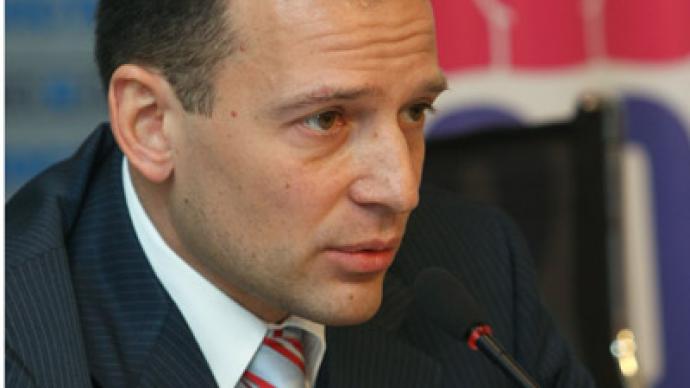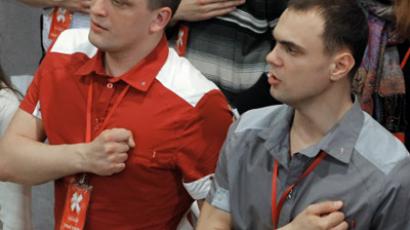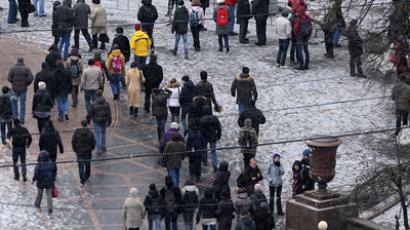‘Protests global fashion trend’ – Nashi founder

The founder of the pro-Kremlin youth movement Nashi, Vasiliy Yakemenko, has said that officials will have to take into account the demands of street protesters, who he describes as restless fans of social media who are searching for self-realization.
Yakemenko, the head of the Russian Committee for the Affairs of Young Generation, is best known for the creation and promotion of Nashi, the thousands-strong, nationwide organization with an openly pro-Kremlin agenda.Created in 2005, Nashi first appeared on the political stage as a non-violent organization to act as a ward off any “Orange threat,” in reference to Ukraine’s 2004 Orange Revolution that ended in political turmoil for that nation.In an interview with the Lenta.ru news web-site, Yakemenko spoke about the December protests in which thousands of Muscovites took to the streets to demand changes in the country’s political system, as well as to denounce the alleged violations of the December 4 parliamentary elections.The Nashi founder said the December protests were the major political event of 2011, but connected the protests not with the alleged violations, but rather with President Dmitry Medvedev’s decision not to run for a second term in next year’s presidential elections.“De-facto, with Medvedev’s decision these people realized that they no longer had the leader they laid hopes to,” Yakemenko said, adding that if Medvedev’s moves to change the political system were voiced earlier the protests would have been much weaker.Furthermore, he described the December rallies as part of “an international fashion trend.” “They protest everywhere, and the desire for self-realization is the most urgent international trend today,” Yakemenko explained. “Social networks taught people to be the center of attention. On the primary level this requires regular renewal of one’s account and on the second level, a desire to influence events.”What happened in December is a part of a “large and complicated process of change in cultures,” he added.In Yakemenko’s opinion, the people are wearier of politics per se – from United Russia to the Communists – than they are of any particular political leader.“People from Bolotnaya Square reject not Putin, but the cultural group that is called United Russia,” he said. “In my view, the Liberal Democratic Party, the Fair Russia and the Communist Party are all parts of the larger United Russia.”Yakemenko then spoke about the new generation of people, many of whom are used to the “unlimited freedoms” now found in social networks, which gives them the ability to “express themselves fast,” even if this is achieved rather simplistically by pressing “like” and “retweets.”As a result of this unlimited choice, the new generation is watching those who are now dominating the political scene and saying “No” to all of them, he said. Thus, the street protests have made the situation quite difficult for Prime Minister and presidential candidate Vladimir Putin. “These people cannot be ignored, this is not possible,” Yakemenko stressed. “Not because they take to the streets, but because these people are creative, energetic and noisy. It is impossible not to take them into account.”The head of the Committee for the Affairs of Young Generation also said that the pro-Kremlin youth movements did not plan to oppose the protests as long as the protests remain within legal boundaries. He reminded that last year Nashi launched street actions only in reply to illegal, non-sanctioned rallies on Triumfalnaya Square, while the rallies on Bolotnaya Square and Sakharov Prospect were negotiated with the authorities and given the green light.“I think that as long as the events are taking a peaceful course the Nashi movement or any other movement cannot include themselves in a standoff process,” he said. “We should not use the Nashi movement or any other movement to turn a peaceful protest into a civil conflict.” "The movements, together with anyone whose position is different from the one of the protesters, can express themselves after the first buildings are set on fire. Not sooner than that,” he said.














